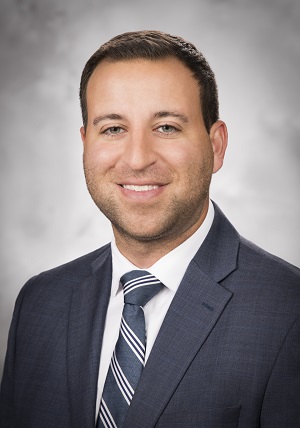Local Cardiologist Discusses Prevention Strategies for Keeping Your Heart Healthy
February 6, 2024
Categories: Community Health, Cardiovascular Health
Paul Nona, MD, is a board-certified cardiologist with Trinity Health IHA Medical Group. To promote Heart Health Month, Dr. Nona discusses common heart ailments and strategies people can take to live longer, heart healthy lives.
Q: Why did you choose cardiology as your specialty, and why do you think it is important for everyone to have a cardiologist?
Dr. Nona: Cardiology combines a lot of my passions – particularly when it comes to the new medications, interventions and technology that are now available to us. Cardiology is also exciting because it allows me to work with patients of all ages.
And that last point goes into why having a cardiologist is so important – it affects a large portion of the human population, regardless of how old you are. The heart is one of the most vital organs in the human body and keeping it as healthy as possible for as long as possible is crucial.
Q: How do you help younger patients as opposed to older patients?
Dr. Nona: As you age, maintaining your health is harder to deal with, and the heart is no exception. That is why a lot of the work I do with patients in their 20s or 30s has to do with prevention. When I am meeting with a patient in that age range and they have concerns about their long-term heart health, we perform a risk assessment which includes looking at their cholesterol levels and compiling other data. After that, we will discuss treatment management, if applicable, and go from there to set them up with a success plan.
Q: What are some other ways to prevent heart disease?
Dr. Nona: If you're at risk for heart disease, making immediate lifestyle changes should be first on the to-do list. These changes include having a healthier diet and increasing your physical activity on a per week basis. Be sure to limit the amount of red meat, carbohydrates and processed foods you consume, and instead, eat more lean protein like chicken and fish, and incorporate more fresh fruits and vegetables.
Another big one is to avoid tobacco products, and to stop altogether if you use them already. Whether it’s cigarettes, vapes or something in between, these products have major negative implications for heart disease. In fact, 25 percent of deaths related to cardiovascular disease is directly related to smoking. Tobacco products are a huge detriment when it comes to one’s overall health, but especially their heart health.
Q: How big a role does family history play in one’s heart health?
Dr. Nona: It definitely plays a factor in someone potentially developing heart problems. I have a good number of patients that see me and discuss their concerns about a close relative’s heart issues, and how it can correlate to their own future health. With those
patients, we perform tests to get a better understanding of their likelihood for having heart issues. One of the tests we do evaluates the amount of lipoprotein (a) in the patient’s blood, which are particles that distribute unhealthy cholesterol through your blood and into your cells. The more lipoprotein (a) they have, the greater chance they have at developing heart disease or suffering a stroke. We have other testing – such as imaging – readily available for our patients as well in the event they are needed.
Q: Is there anything else you’d like patients to know?
Dr. Nona: As I always say, it's easier to be proactive than reactive, because there are times when you can't even react until something catastrophic happens. Having a trustworthy cardiologist is essential to not just living a long life, but to living a healthy life as well. At Trinity Health IHA Medical Group, we are here for you every step of the way. From the initial consultation to wherever else your health journey takes you, we are dedicated to providing the highest quality of care possible for each one of our patients.
To learn more or to schedule an appointment, please visit ihacares.com/specialties/cardiology.



